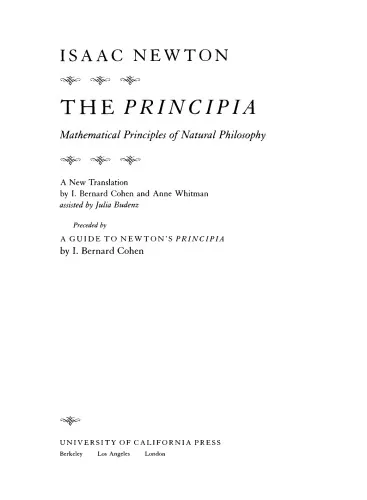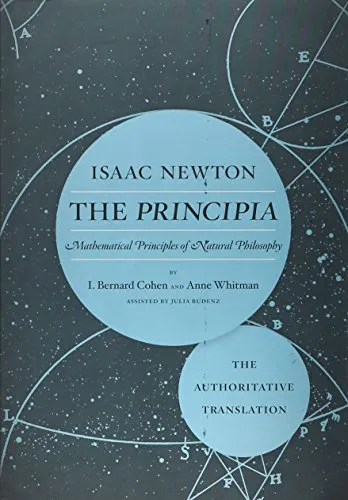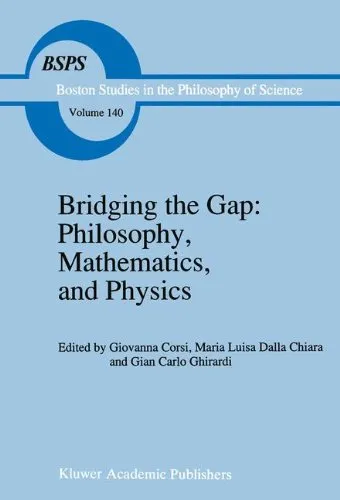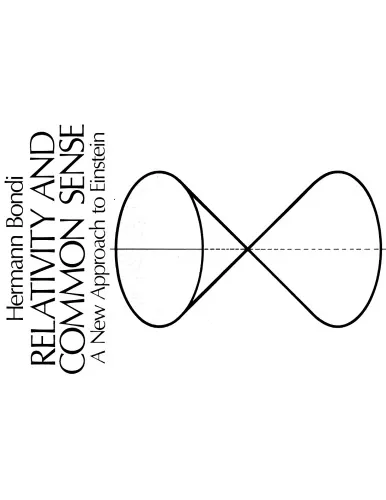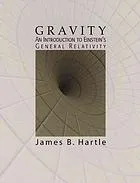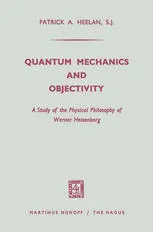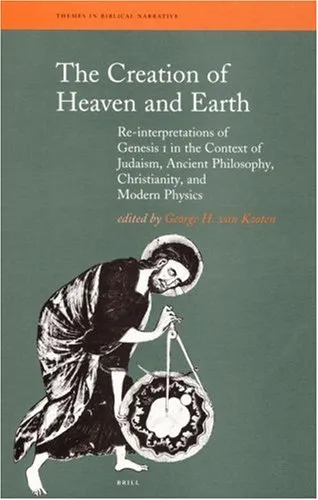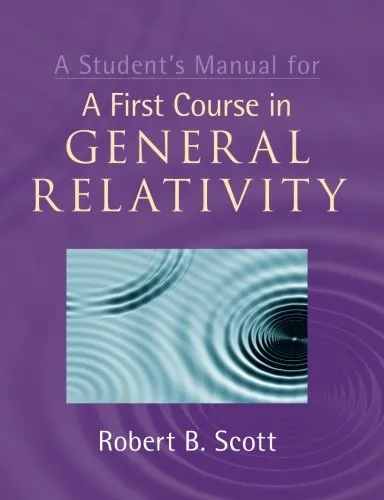Sir Isaac Newton’s mathematical principles on natural philosophy and his system of the world: Volume 2 The System of the World
4.7
Reviews from our users

You Can Ask your questions from this book's AI after Login
Each download or ask from book AI costs 2 points. To earn more free points, please visit the Points Guide Page and complete some valuable actions.Related Refrences:
Introduction to 'Sir Isaac Newton’s Mathematical Principles on Natural Philosophy and His System of the World: Volume 2 - The System of the World'
Sir Isaac Newton, a name synonymous with scientific revolution and intellectual rigor, authored one of the most influential works in human history: *"Philosophiæ Naturalis Principia Mathematica"*, or *Mathematical Principles of Natural Philosophy*. The second volume of this monumental work, titled *The System of the World*, delves into the practical application of Newton's revolutionary theories of motion and gravitation, offering readers a comprehensive view of how these principles govern the cosmos.
First published in the 17th century, this masterpiece laid the foundation for classical mechanics and transformed our understanding of the natural world. Newton not only provided mathematical models to describe planetary motion but also presented profound insights into the interconnectedness of phenomena in the universe. *The System of the World* stands as a continuation of Newton's groundbreaking ideas, crystallizing his philosophy into a narrative combining meticulous scientific inquiry with poetic reflections on the cosmos.
This introduction explores the themes, structure, and key aspects of *The System of the World*. By the end, you will gain an appreciation of why this volume remains a cornerstone of scientific literature, admired not only for its historical significance but also for its enduring relevance in modern science.
Detailed Summary of the Book
*The System of the World* serves as the practical complement to the theories expounded in Volume 1 of the *Principia*. The book begins by exploring the mechanics of celestial bodies, focusing on how universal gravitation governs planetary orbits, the complexities of the moon's motions, and the phenomena of tides. Newton meticulously explains how the principles of motion apply not just to planets and moons but also to more terrestrial phenomena, such as falling objects and pendulum swings.
Throughout the text, Newton provides an extensive account of observational data that supports his theories. He merges advanced mathematical reasoning with empirical evidence, presenting the motion of comets as well as the mechanics of the Earth-Moon-Sun system. Newton’s narrative demonstrates not only his mastery of natural philosophy but also his unique ability to synthesize observation, logic, and mathematical precision.
Ultimately, *The System of the World* serves as a compelling testament to the universality of Newton’s laws of motion and gravitation. It bridges the gap between the abstract mathematical principles derived in Volume 1 and the physical, observable phenomena they describe and predict. The book also reflects Newton's philosophical view of a harmonious cosmos governed by divine order, revealing the depth of his intellectual pursuits.
Key Takeaways
Below are some of the critical takeaways from *The System of the World*:
- Newton’s laws of motion dictate the behavior of objects both on Earth and in the heavens.
- Universal gravitation is the force behind planetary orbits, tides, and even seemingly unrelated terrestrial phenomena.
- Empirical evidence and mathematical rigor are indispensable for developing scientific theories.
- The structure of the solar system reflects Newton’s view of a ordered and predictable universe.
Famous Quotes from the Book
Sir Isaac Newton's writings in *The System of the World* are known not only for their scientific clarity but also for their philosophical depth. Below are some of the most notable quotes from the book:
"The motions of the planets follow from the same principles as the motion of projects on Earth."
"Gravity must be caused by an agent acting constantly according to certain laws."
"In the absence of any other proof, the thumb alone would convince me of God's existence."
Why This Book Matters
The significance of *The System of the World* cannot be overstated. It bridged the divide between abstraction and observation, providing readers with a robust framework for understanding the natural universe. While Volume 1 of the *Principia* offered the theoretical groundwork, Volume 2 brought these theories to life, illustrating their applications in the real world and offering a comprehensive explanation of the mechanics of the cosmos.
Beyond its scientific impact, the book reflects the intellectual and philosophical mindset of the Enlightenment. Newton's emphasis on logic, reason, and evidence challenged existing norms and inspired generations of scientists, philosophers, and thinkers. Even centuries later, his contributions continue to shape physics, engineering, astronomy, and other disciplines.
*The System of the World* is more than a scientific treatise; it is a work of intellectual artistry, an embodiment of Newton’s unparalleled genius, and a testament to humankind’s relentless pursuit of understanding the universe.
Free Direct Download
You Can Download this book after Login
Accessing books through legal platforms and public libraries not only supports the rights of authors and publishers but also contributes to the sustainability of reading culture. Before downloading, please take a moment to consider these options.
Find this book on other platforms:
WorldCat helps you find books in libraries worldwide.
See ratings, reviews, and discussions on Goodreads.
Find and buy rare or used books on AbeBooks.
1357
بازدید4.7
امتیاز0
نظر98%
رضایتReviews:
4.7
Based on 0 users review
Questions & Answers
Ask questions about this book or help others by answering
No questions yet. Be the first to ask!


